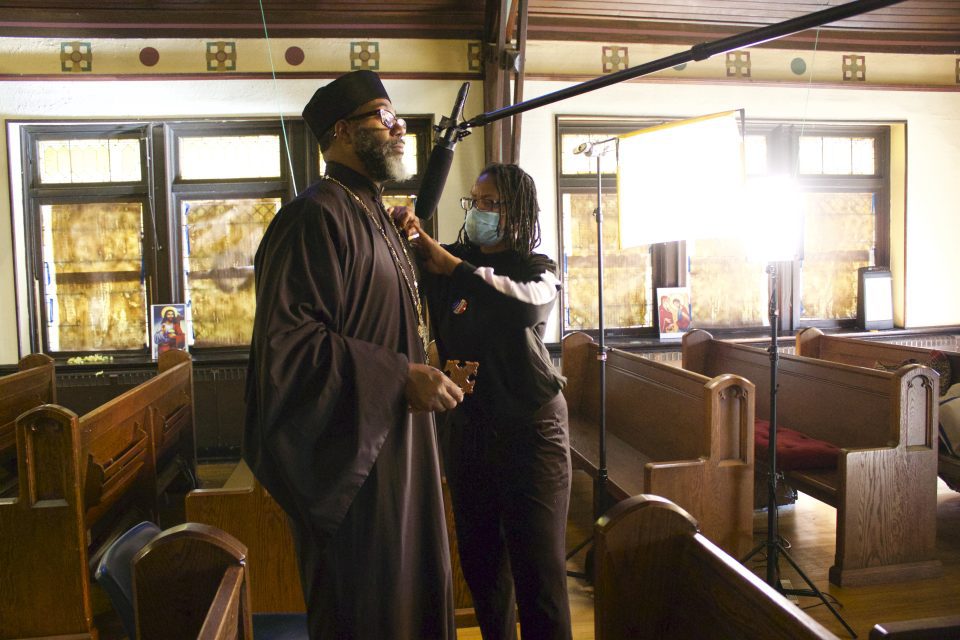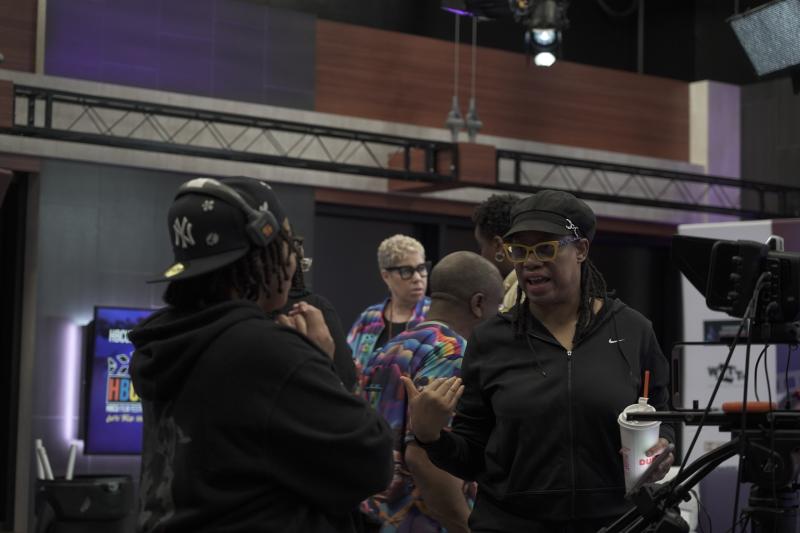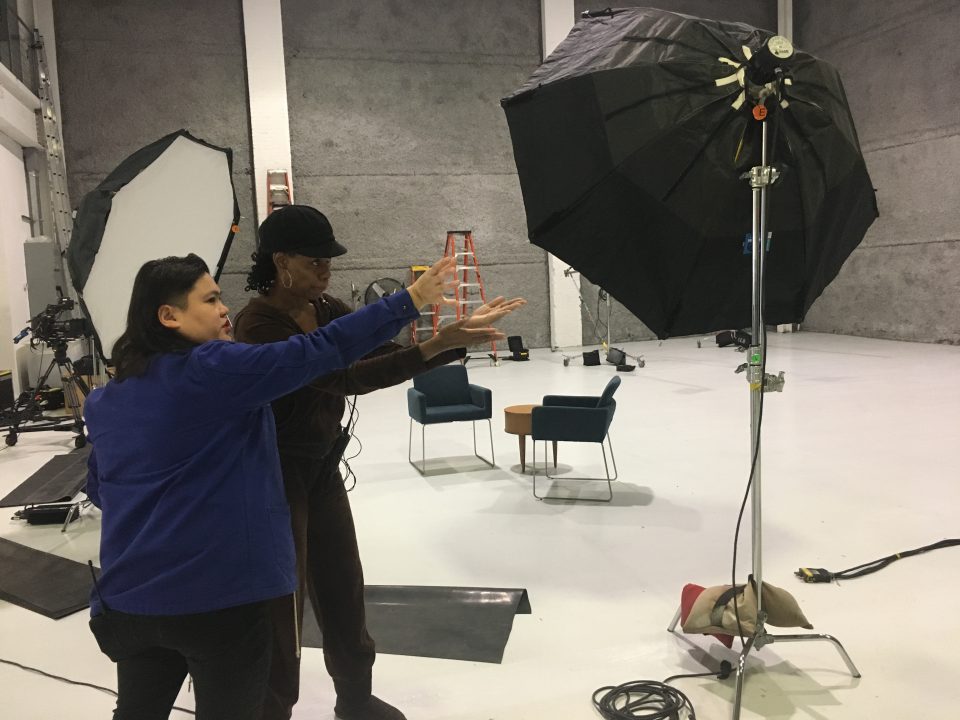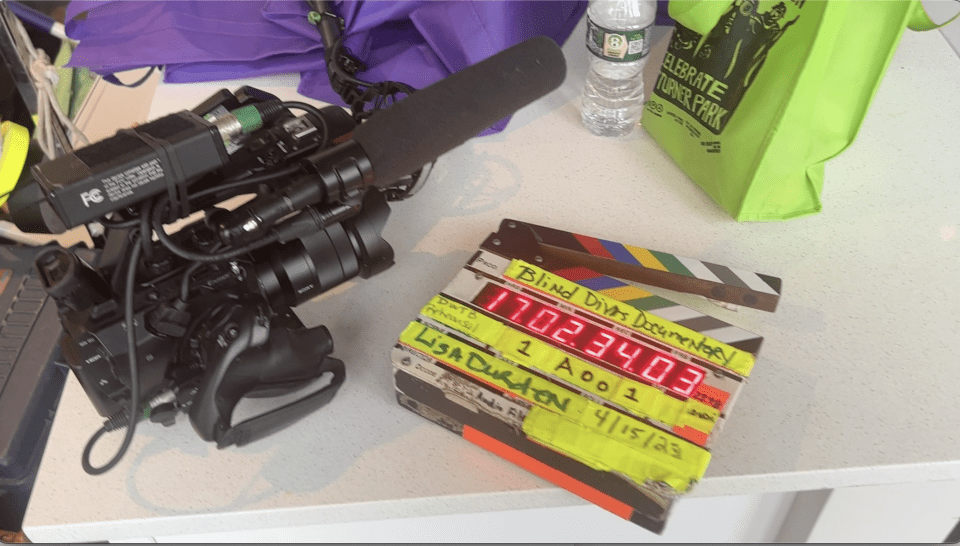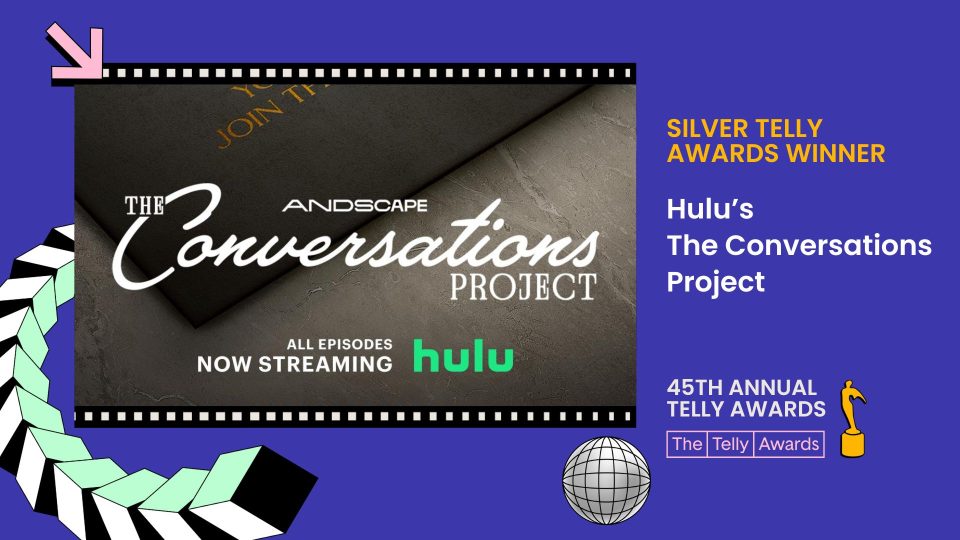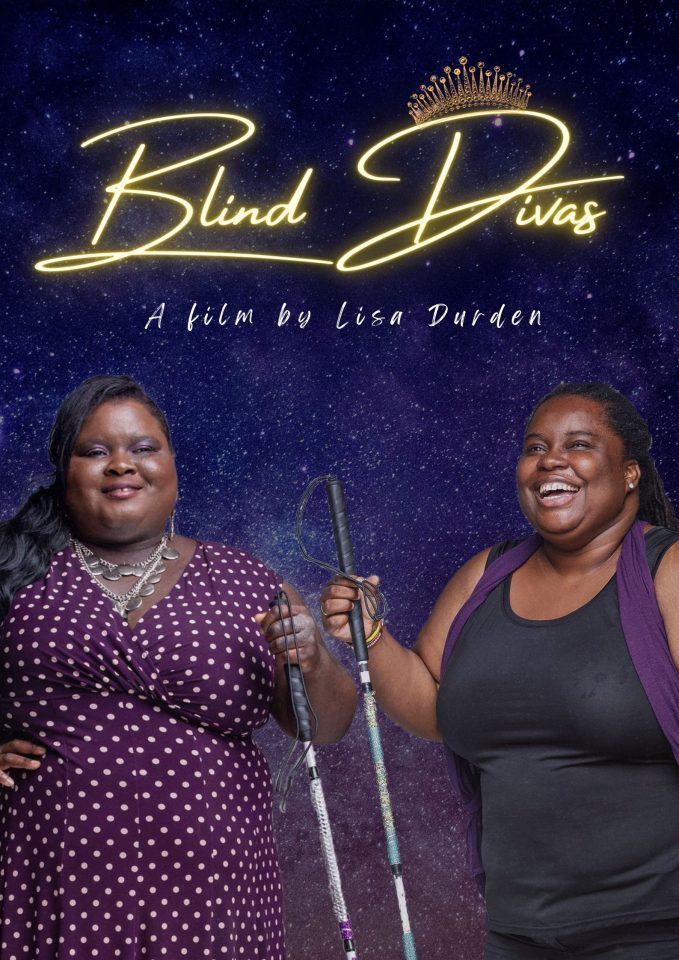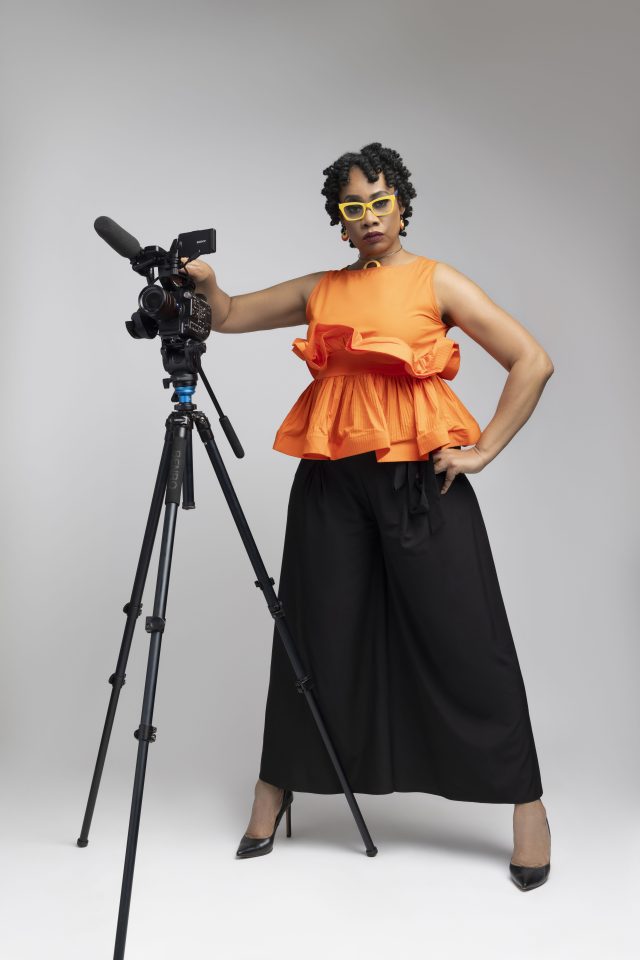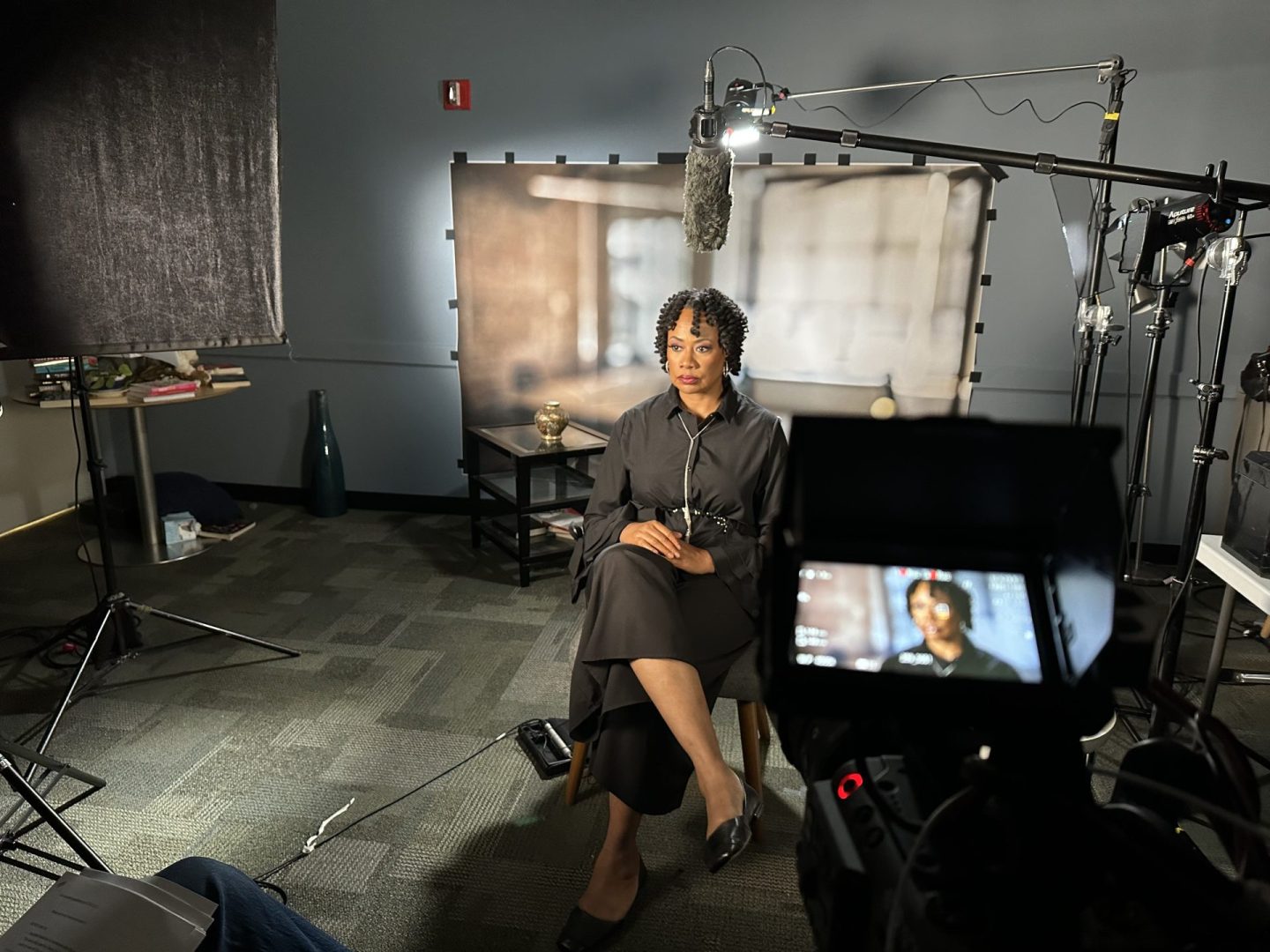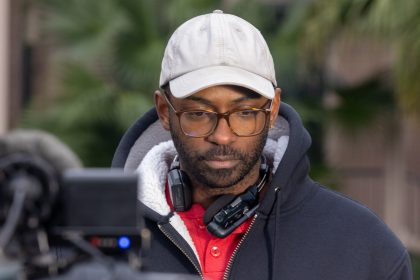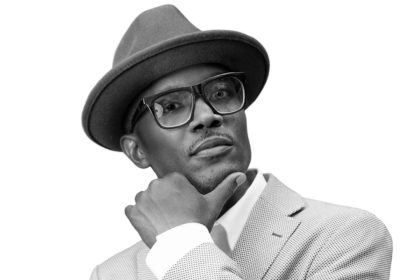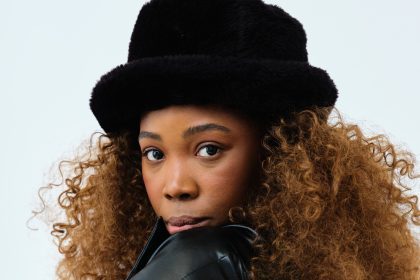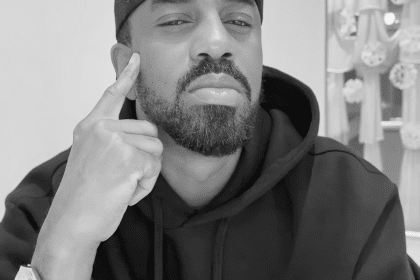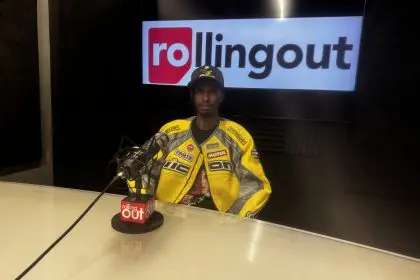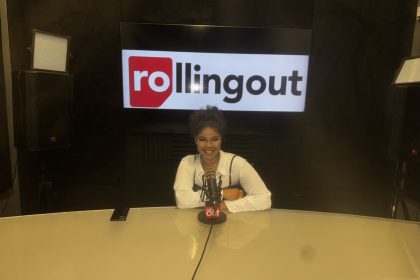Lisa Durden doesn’t just tell stories – she transforms them into catalysts for change. As an award-winning filmmaker who’s earned recognition from the Telly Awards to GLAAD, Durden has built her career challenging an entertainment industry that often relegates marginalized voices to the shadows.
Through her production company, Lisa Durden Unlimited Productions, she’s tackled projects ranging from workplace sexual harassment to the untold history of the Ethiopian Orthodox Church in America. Her current documentary “Blind Divas” exemplifies her innovative approach – reimagining traditional visual storytelling to capture the experiences of visually impaired subjects.
But perhaps what sets Durden apart isn’t just what she puts on screen – it’s her steadfast commitment to equity behind it. When faced with pressure to use unpaid labor, she fought back. When seeing barriers for emerging talent, she created bridges, partnering with Prairie View A&M University film students and actively mentoring the next generation of diverse creators. As the voice behind the “Stop Brutalizing Black Bodies” podcast and a frequent national media commentator, she proves that authentic storytelling can be both commercially viable and socially transformative.

Every filmmaker and television creator has a unique narrative voice. What defining experiences shaped your storytelling approach, and how has your creative vision evolved throughout your career? How do you maintain authenticity while reaching diverse audiences?
My mission as filmmaker is to ensure authenticity by prioritizing deep research, ethical storytelling, and direct engagement with the people whose stories I tell. This commitment helps me avoid surface-level representation and instead create narratives that are both nuanced and deeply resonant. As a director and television producer, I see my role not just as a storyteller but as a bridge between lived experiences and audiences who may have never encountered these realities. My goal is to create content that sparks emotional and intellectual engagement, fostering both empathy and action. The defining experiences that shaped my storytelling approach stem from witnessing the untold stories of marginalized communities and realizing the power of amplifying those voices—an approach seen in my work as producer of ABC 20/20’s ‘Diary Of A Killer,’ a two-hour documentary special.
Throughout my career, I have learned that storytelling is not just about shedding light on issues but also about inspiring change. Whether through investigative documentaries, scripted narratives, or thought-provoking discussions, I ensure my work remains compelling and impactful. I constantly evolve my creative vision by embracing new storytelling techniques while staying rooted in my mission to amplify underrepresented voices. The future of storytelling lies in its ability to unite people across cultures, and I strive to be a catalyst for that connection.
By maintaining artistic integrity while reaching diverse audiences, I create stories that are both culturally specific and universally resonant. Representation matters, and I use my platform to ensure that marginalized voices are not only heard but celebrated. Ultimately, my work is a reflection of my unwavering commitment to truth, equity, and the transformative power of storytelling.
Share a pivotal production challenge that tested your creative problem-solving abilities. How did you transform that obstacle into an opportunity for innovation in storytelling?
During the production of the ‘Blind Divas’ documentary, navigating the unique needs of visually impaired subjects while maintaining cinematic quality posed a significant challenge. Traditional visual storytelling methods weren’t enough to fully capture their experiences, so I had to rethink how to engage audiences beyond just visuals. By reimagining my approach, I’m leaning into sensory-rich elements like immersive sound design, textured visuals, and descriptive storytelling to bring their world to life. This obstacle became an opportunity to innovate, creating a more inclusive narrative style that deepens audience connection and emotional resonance. Instead of seeing accessibility as a limitation, I embraced it as a creative tool to push the boundaries of documentary filmmaking. The result is going to be a film that not only tells a powerful story but also transforms the way we experience and understand visual impairment.
How do you balance artistic integrity with commercial viability? What practices keep your creative vision fresh while meeting industry demands?
I balance artistic integrity with commercial viability by crafting compelling, socially conscious stories that resonate with broad audiences while staying true to my mission of amplifying marginalized voices—an approach exemplified in my work as assistant director of the all women crew for the Verizon PSA ‘Conversations With Mom,’ about workplace sexual harassment. Understanding the balance between meaningful storytelling and industry expectations allows me to create work that is both impactful and commercially viable. I carefully choose projects that align with my values while ensuring they have the potential to reach mainstream audiences, proving that socially relevant content can also be profitable.
By staying informed on industry trends, collaborating with innovative creatives, and embracing new storytelling techniques, I ensure my work remains both relevant and engaging. I actively seek out fresh perspectives by engaging with communities, attending festivals, and mentoring emerging talent, which helps me stay connected to evolving narratives and audience interests. Experimenting with new technologies, from virtual production to immersive media, allows me to push creative boundaries without losing the authenticity of my storytelling. I also prioritize relationships with distributors and networks who understand the value of bold, meaningful storytelling, ensuring my work finds the right platforms.
To maintain creative freshness, I constantly study the work of other filmmakers, explore global cinema, and challenge myself to tell stories in unexpected ways. I believe that great storytelling comes from lived experience, so I make it a point to remain deeply engaged with the world around me. Listening to the voices of those directly impacted by the stories I tell ensures that my work remains authentic and emotionally resonant. This commitment to both artistry and industry adaptability ensures that my work remains dynamic, purposeful, and influential.
How has advancing technology transformed your approach to production and storytelling? What emerging technologies or methodologies excite you about the future of visual storytelling?
Advancing technology has allowed me to push the boundaries of storytelling by integrating high-quality, cost-effective production tools and immersive techniques. Access to mobile filmmaking, cloud-based collaboration, and virtual production has made it easier to amplify underrepresented voices while maintaining cinematic excellence. I’m particularly excited about AI-assisted accessibility features, like real-time audio descriptions and interactive storytelling, which can create more inclusive viewing experiences. As technology continues to evolve, I see endless opportunities to merge innovation with authentic storytelling, ensuring that diverse narratives reach wider audiences in groundbreaking ways.

Describe your approach to embracing new production techniques while maintaining focus on fundamental storytelling principles. How do you see the integration of AI and virtual production shaping the future of content creation?
I embrace new production techniques by ensuring they enhance, rather than overshadow, the heart of storytelling—authenticity, emotion, and character-driven narratives. While AI and virtual production offer exciting efficiencies and creative possibilities, I prioritize using them as tools to deepen storytelling rather than replace human connection. Real-time rendering can democratize content creation, making high-quality production more accessible to independent filmmakers. As these technologies evolve, I see them expanding opportunities for diverse voices, allowing underrepresented storytellers to create visually stunning, impactful content without traditional barriers.
What role does innovation play in your creative process? Share how you incorporate new tools and techniques while preserving the human element in storytelling?
Innovation allows me to elevate storytelling by integrating new tools that enhance visual and emotional impact while staying true to the human experience. I embrace technologies like AI-assisted editing and virtual production to streamline workflows, but I always ensure that the heart of the story—authentic voices and lived experiences—remains the driving force. By using these advancements to amplify, rather than overshadow, storytelling, I create immersive, socially conscious narratives that connect with audiences on a deeper level.
How do you approach mentorship and developing emerging talent? What wisdom would you share with creators entering today’s rapidly evolving entertainment landscape?
I approach mentorship by fostering a supportive, hands-on environment where emerging talent can develop their voices while gaining a deep understanding of the business of storytelling. I believe that mentorship is not just about guidance but about creating real opportunities for growth, which is why I actively involve mentees in my productions. I had the honor of partnering with Prairie View A&M University film students to direct The HBCU FirstLook ‘Let’s Talk Fireside Chat with Loni Love,’ providing them with real-world experience and industry insights. By giving emerging creatives access to industry professionals, production sets, and strategic networking, I help bridge the gap between education and real-world application.
I encourage young, up-and-coming creators to embrace authenticity, stay adaptable, and never compromise their vision while navigating the industry’s rapid changes. The entertainment landscape is constantly evolving, and those who learn to balance artistic integrity with industry demands will find lasting success. Building strong relationships, mastering new technologies, and understanding the power of collaboration are key to long-term sustainability in this business. I remind new creators that their unique perspective is their greatest asset—lean into it, and the right opportunities will follow.
One of the biggest challenges for emerging talent is overcoming imposter syndrome and breaking through industry barriers, but resilience and persistence are essential. I emphasize the importance of learning every aspect of the business, from production to distribution, so they can advocate for themselves and retain ownership of their work. Aspiring filmmakers and television creators should not wait for permission to tell their stories—technology has made it easier than ever to create, distribute, and connect directly with audiences. Most importantly, I encourage mentees to use their voices boldly, because the industry needs fresh perspectives now more than ever.

Describe a time when industry pressures challenged your creative principles. How did you navigate this situation while maintaining your artistic integrity?
Once, I was asked to book two production assistants to work for free, despite there being money in the budget to compensate them. Instead of complying, I took it upon myself to advocate for fair pay, pushing back against the idea that unpaid labor should be an industry norm. I can’t stand it when people abuse their power because they can. Authentic power is when you use your power to help not harm and that’s exactly what I did and will continue to do to when I have the ability to stop that kind of bad behavior and even the playing field. Particularly around pay equity. After negotiating, the decision-maker agreed to pay them, reinforcing my commitment to valuing every crew member’s contribution. Standing firm in my principles not only ensured ethical treatment but also set a precedent for prioritizing integrity over industry pressures.
This experience solidified my belief that fair labor practices should never be compromised for the sake of convenience or profit. I’ve seen too many talented people undervalued, and I refuse to be complicit in that cycle. My approach to leadership in this industry is rooted in advocacy, transparency, and respect for the people who make storytelling possible. While pushing back against industry norms can be challenging, I’ve learned that standing up for what’s right earns long-term respect and fosters a healthier work environment.
I navigate these situations by staying true to my values and ensuring that my projects reflect fairness both on-screen and behind the scenes. Ethical storytelling isn’t just about the content—it’s about how we treat the people who bring that content to life. When faced with pressures that challenge my principles, I remind myself that the impact of my decisions extends beyond one project. Upholding integrity in the face of adversity isn’t always easy, but it’s necessary to create lasting change in the industry.
What impact do you hope your work has on the evolution of film and television? How are you working to create lasting positive change in the industry?
I hope my work challenges the industry to center marginalized voices, amplify untold stories, and redefine whose narratives deserve to be seen and heard. By creating socially conscious content, mentoring emerging talent, and pushing for equitable practices, I am committed to fostering a more inclusive and just entertainment landscape. My goal is to leave a lasting impact where authenticity, diversity, and ethical storytelling are not exceptions but the standard in film and television. As the supervising story producer of Hulu’s ‘The Conversations Project,’ a six-part conversational series inspired by The Harlem Renaissance Salon, I was proud to see the industry recognize the project with two Telly Awards, an Anthem Award, and a GLAAD Award nomination.
Beyond accolades, I measure success by the opportunities I create for others and the conversations my work sparks about representation and justice. Through projects like Blind Divas and My Brother: The Ethiopian Orthodox Priest, I strive to dismantle barriers and expand narratives that have been historically overlooked. I actively work to uplift emerging creatives, especially those from underrepresented communities, by offering mentorship and hands-on experience in production. I also advocate for fair wages, equitable hiring practices, and ethical storytelling that respects the lived experiences of those being portrayed.
By continuing to challenge industry norms and elevate bold, necessary stories, I hope to contribute to a lasting shift in how film and television reflect the world. My mission is to ensure that the next generation of creators inherits an industry that values truth, diversity, and the power of storytelling to drive real change.
How do you use your platform to address social issues and represent diverse perspectives? What responsibility do creators have in shaping cultural narratives?
I use my platform to amplify diverse voices and perspectives by intentionally developing projects that highlight underrepresented stories and social issues—one such project is ‘My Brother: The Ethiopian Orthodox Priest,’a documentary I’m directing that is currently in early production. It’s a contemporary story with a historical context, bringing to light how the three founders of the Ethiopian Orthodox Church in America launched their mission during the height of the Civil Rights Movement. Their goal was to engage African Americans in the faith, creating what was essentially a spiritual Black Lives Movement of its time. My brother’s journey to the priesthood is front and center, serving as the throughline that guides viewers into this rich and complex world.
I know that if I don’t tell this historical story, it may never be told, and preserving these narratives is essential for future generations. While creators may not be obligated to shape cultural narratives, I choose to take on that responsibility because storytelling has the power to influence change. Film and television have the ability to challenge stereotypes, shift perceptions, and foster empathy, making it critical for creators to be intentional about the narratives they share. I ensure my work reflects the lived experiences of marginalized communities with authenticity and depth, giving voice to those often overlooked by mainstream media.
By prioritizing equity, truth, and representation in my content, I contribute to a media landscape that is more inclusive, impactful, and transformative. I believe that media should not only entertain but also educate and empower audiences to see the world through different perspectives. Every story I tell is an opportunity to spark conversation, inspire action, and challenge the status quo. Through my work, I strive to create lasting change by making space for voices that have been historically silenced.
Share your vision for the future of entertainment. How can the industry evolve while preserving the magic of storytelling?
I envision an industry where underrepresented voices are not just invited to the table but are leading the conversation, driving narratives that challenge outdated perspectives. Entertainment must evolve by fostering inclusive spaces behind and in front of the camera, ensuring that storytellers from all backgrounds have access to resources, funding, and distribution. The rise of digital platforms and independent content creation provides new opportunities to break traditional industry gatekeeping and democratize storytelling.
While technology like AI, virtual production, and immersive media can enhance storytelling, they should never replace the human element that makes narratives truly resonate. The future of entertainment should harness these advancements to expand creative possibilities rather than diminish the authenticity of storytelling. Ethical considerations must also be at the forefront, ensuring that new tools empower rather than exploit creators, particularly those from marginalized communities.
To preserve the magic of storytelling, we must continue to prioritize character-driven, emotionally compelling narratives that connect with audiences on a deep level. Storytelling has always been about human connection, and even as formats change, that fundamental truth must remain intact. The entertainment industry should also be accountable for the messages it amplifies, recognizing its power in shaping cultural perceptions and influencing real-world change.
I am committed to pushing boundaries and ensuring that entertainment remains a space for truth, empowerment, and transformation. By mentoring emerging talent, advocating for ethical storytelling, and amplifying underrepresented perspectives, I hope to contribute to a future where authenticity is the industry standard. We must also challenge outdated business models that prioritize profit over artistic integrity, proving that success and meaningful impact can coexist. The next generation of creators should feel empowered to tell their stories boldly, knowing they have the support and infrastructure to succeed.
Ultimately, entertainment should not only reflect the world as it is but imagine the world as it could be. The industry has the responsibility and the potential to drive cultural progress, and I am dedicated to ensuring that my work contributes to that evolution.
How do you measure success beyond ratings and box office numbers? What legacy do you hope to leave for future generations of creators?
I measure success by the impact my work has on audiences—sparking conversations, shifting perspectives, and amplifying voices that have long been ignored. True success lies in creating content that inspire, empower, and open doors for future generations of diverse creators. My legacy will be one of authenticity, equity, and fearless storytelling, ensuring that those who come after me have more opportunities to tell their own powerful stories.
